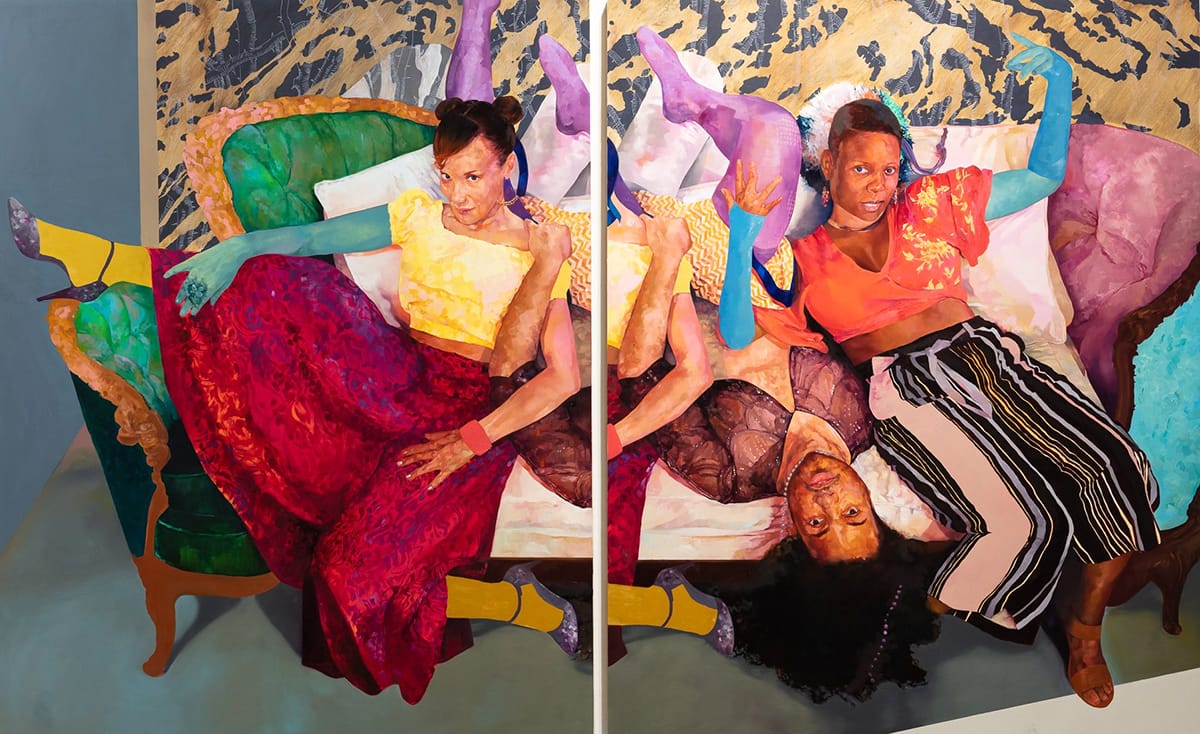Tracing international connections in 'Printing Beyond Borders' at the Beach Museum of Art
The exhibition celebrates connections between K-State's print program and contemporary printmakers from India. It's on view at the university art museum through May 2025.
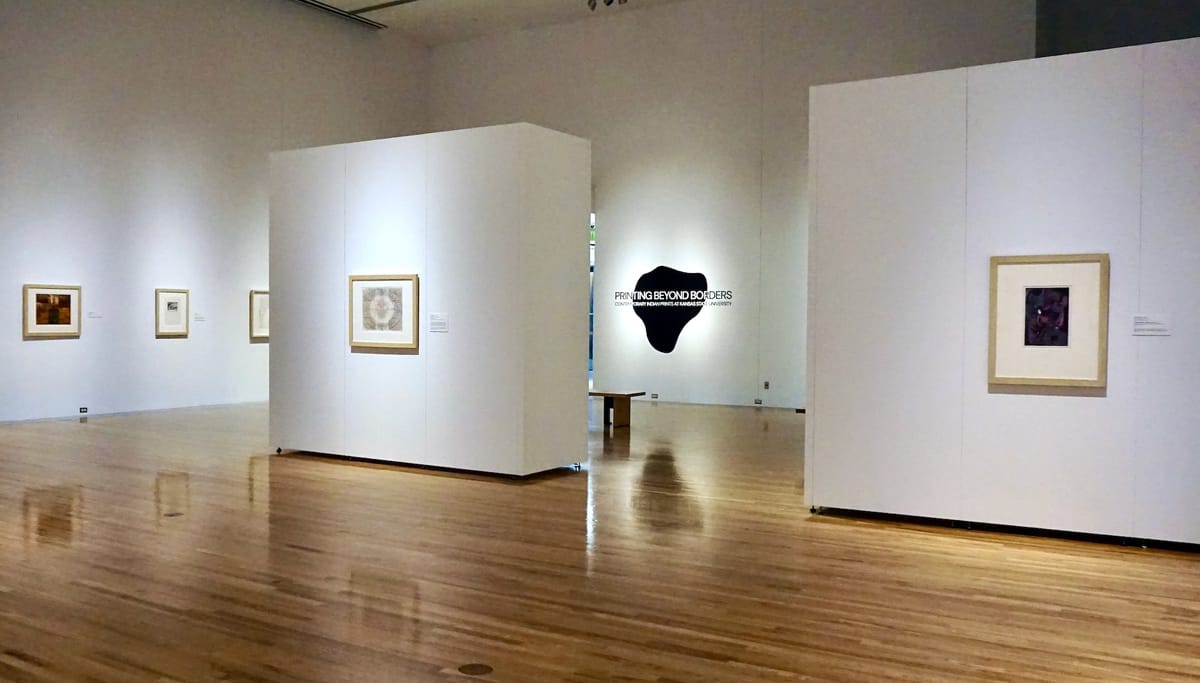
“Printing Beyond Borders: Contemporary Indian Prints at Kansas State University" illustrates a surprising link between Kansas and contemporary artists in India. The exhibition, on display in the Marion Pelton Gallery at the Marianna Kistler Beach Museum of Art in Manhattan, Kansas, explores the printmaking networks of India in the late 20th century as well as the act of cultural exchange through the featured artists’ international connections.
Curated by Vidhita Raina and Michael Jordan Vanhartingsveldt, doctoral students in the Kress Department of Art History at the University of Kansas, “Printing Beyond Borders” showcases prints by Indian artists and those inspired by Indian printmaking, celebrating the research that connects them.
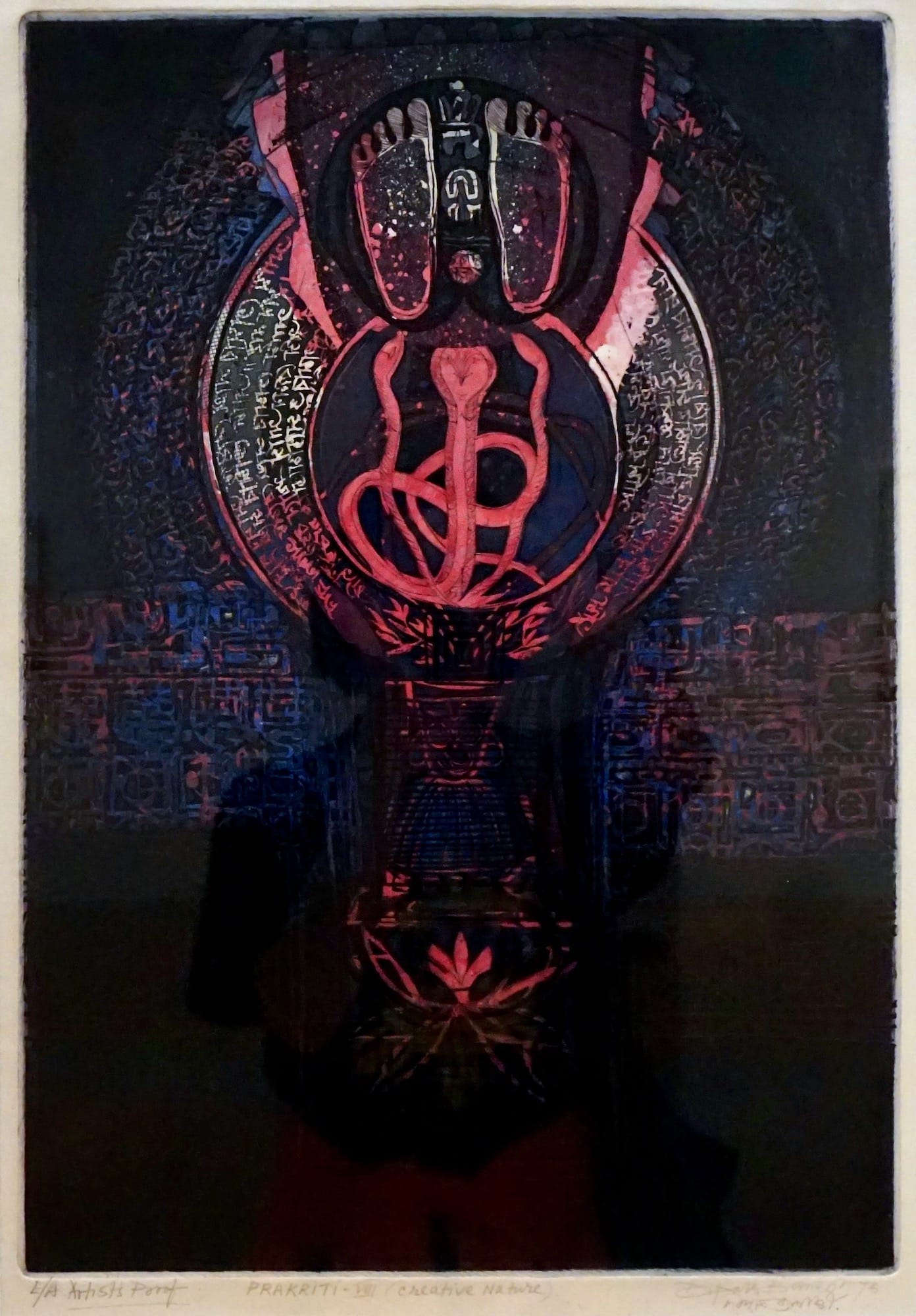
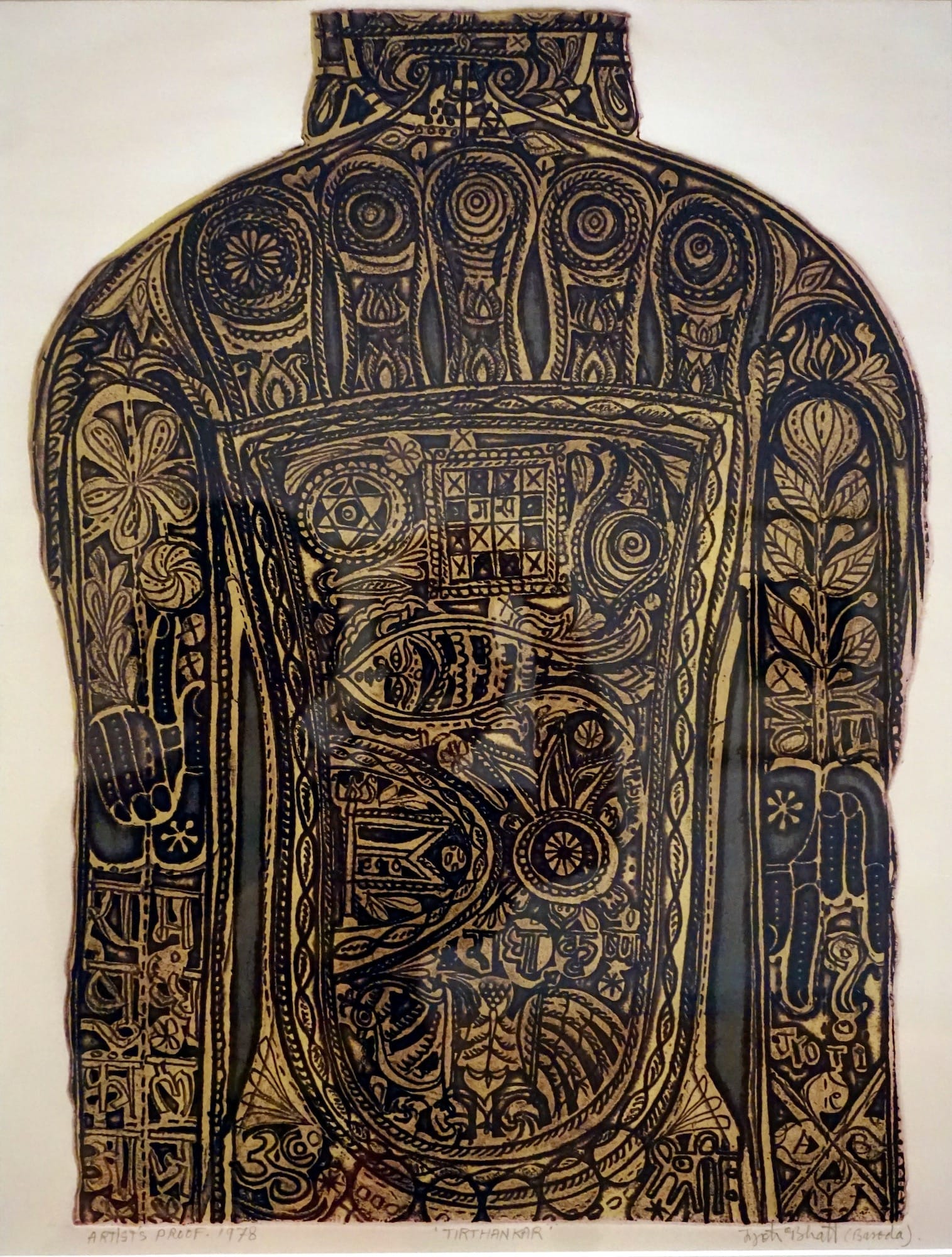
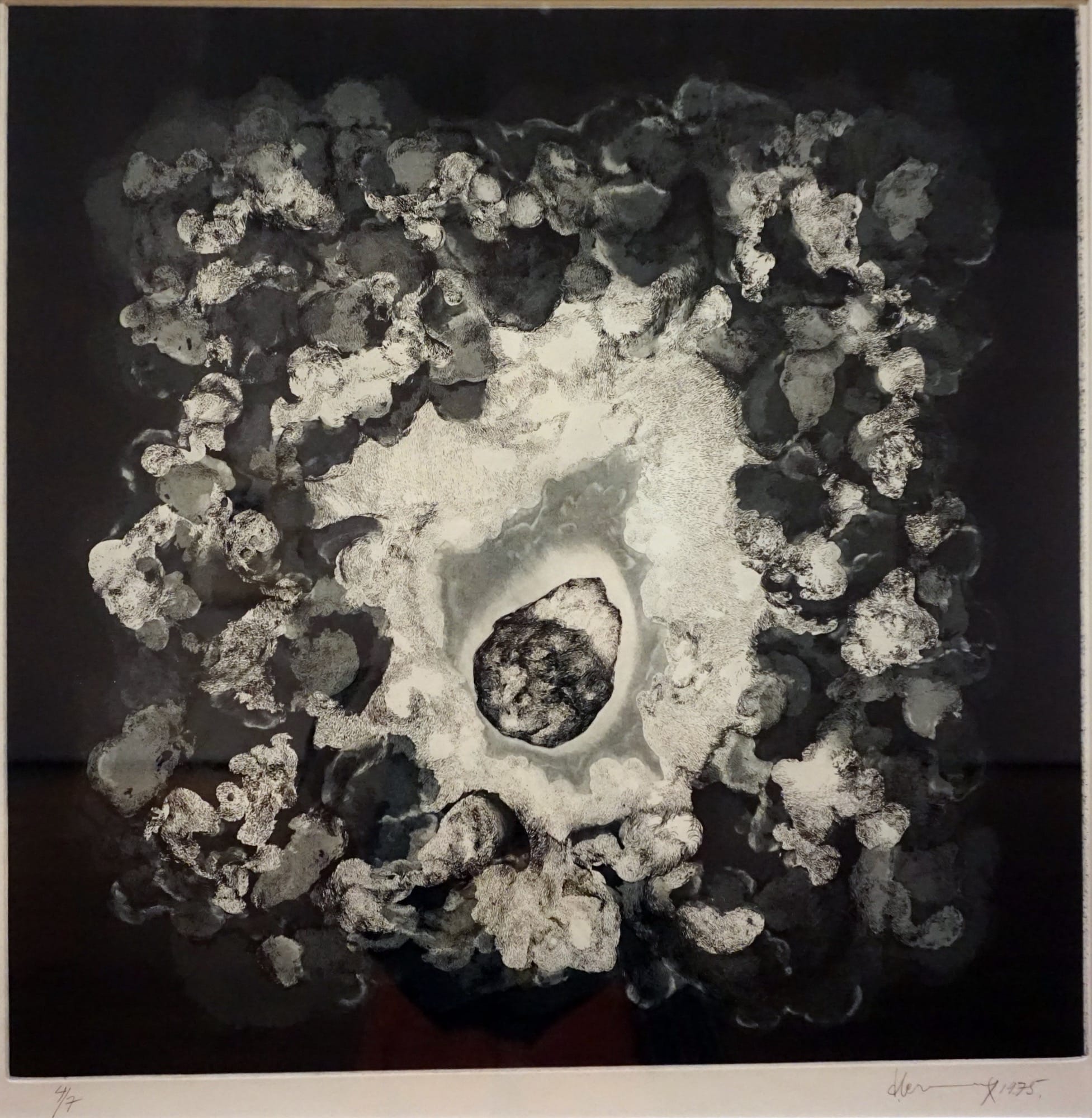
Works in "Printing Beyond Borders," from left: Dipak Banerjee, “Prakriti VIII – Creative Nature,” 1976, aquatint and etching, printed with viscosity (simultaneous color), 19 1/2 by 13 1/2 inches; Jyoti Bhatt, “Tirthankar,” 1978, etching on paper, 18 by 14 inches; Devraj Dakoji, “Untitled,” 1975, etching on paper, 19 by 19 inches. Photos by Abby Bayani-Heitzman for the SHOUT.
Professor of Printmaking Charles Stroh, who was head of K-State’s art department from 1980 to 1989, acquired the artwork for the university. The collection grew out of research he conducted on the state of printmaking in India from 1984 to 1990. During these years, he visited places like Shantiniketan and New Delhi to present lectures and workshops at Viswabharati University and the Delhi College of Art. Indian artists later reciprocated by visiting K-State at his invitation.
The exhibition highlights these relationships with a graph on the wall at the entrance to the gallery, which visually connects various artists and institutions. This web is then brought to life through the show itself, featuring works by Indian artists as well as Stroh. Rather than grouping individual artists’ works together, the curators intermingle them, presenting the collection of prints as a unified group and juxtaposing the Indian artwork with western interpretations.
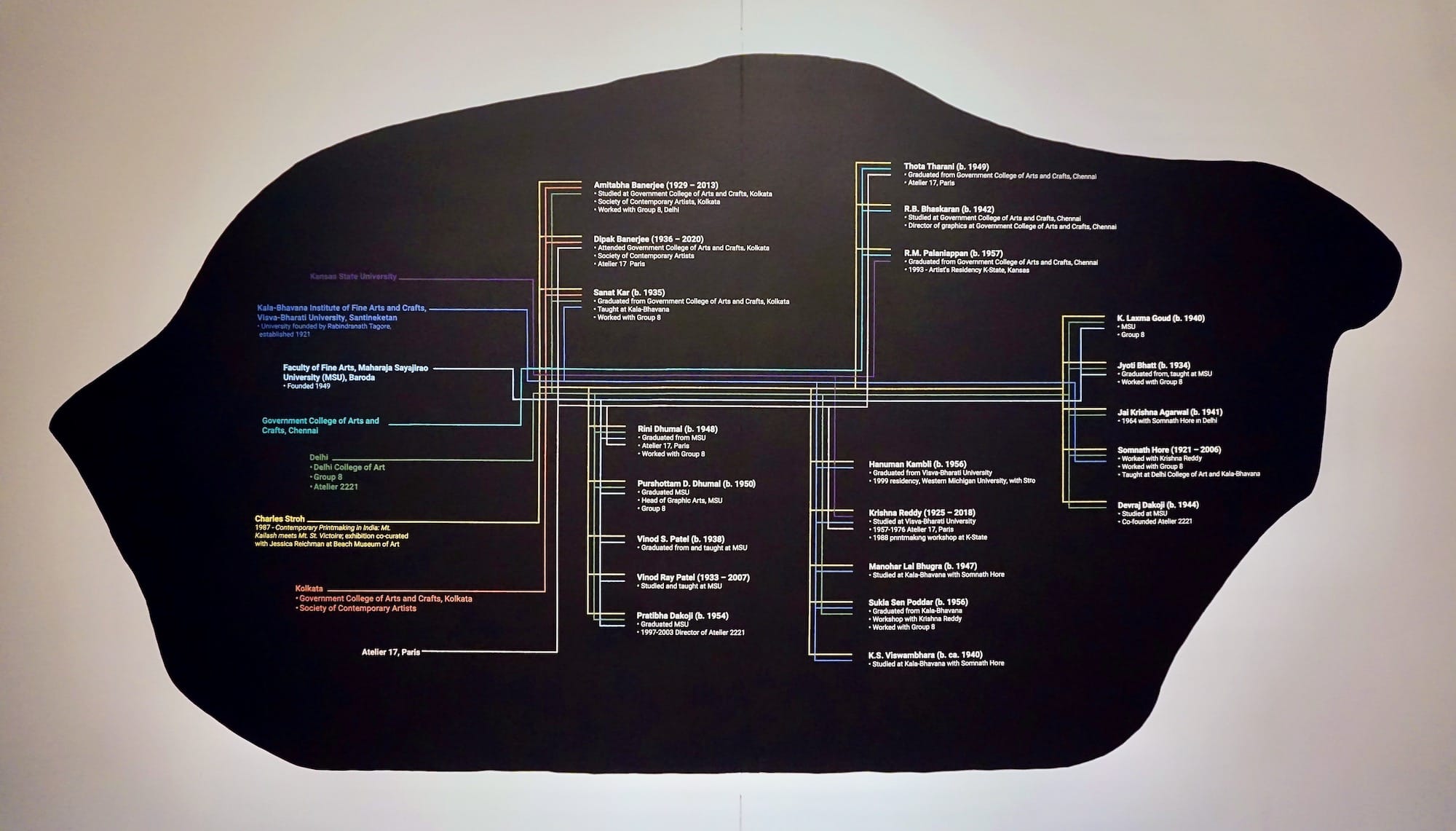
The significance of Indian printmaking and its international connections were not well recognized by American art scholars until Stroh began building the relationships that would bring Kansas into the Indian printmakers’ global network, which included the University of London's Slade School of Fine Arts, several state art schools in Italy, and Atelier 17 in Paris. As a result of Stroh’s research and travels, Indian artists traveled to Kansas to share their work and expertise. Krishna Reddy held a printmaking workshop at K-State in 1988. Later, in 1993, R.M. Palaniappan was an artist-in-residence at the university. Stroh also conducted interviews with artists such as Jyoti Bhatt, helping to shape the American understanding of Indian printmaking.
Our free email newsletter is like having a friend who always knows what's happening
Get the scoop on Wichita’s arts & culture scene: events, news, artist opportunities, and more. Free, weekly & worth your while.
No spam. Unsubscribe anytime.
Stroh did not only research Indian printmakers but also took inspiration from them and produced his own work inspired by their imagery and processes. One of Stroh’s most striking pieces on display is “The Artist at 41 with Bhagavati.” The vivid woodcut print is a self-portrait stacked above a representation of a Hindu goddess, along with a serpent to the left of the artist and a black bird to his right. The overlapping imagery, layering of colors, and proximity of the subjects gives the effect of the artist and goddess merging, especially as the boundaries of Stroh’s head seem to melt away.
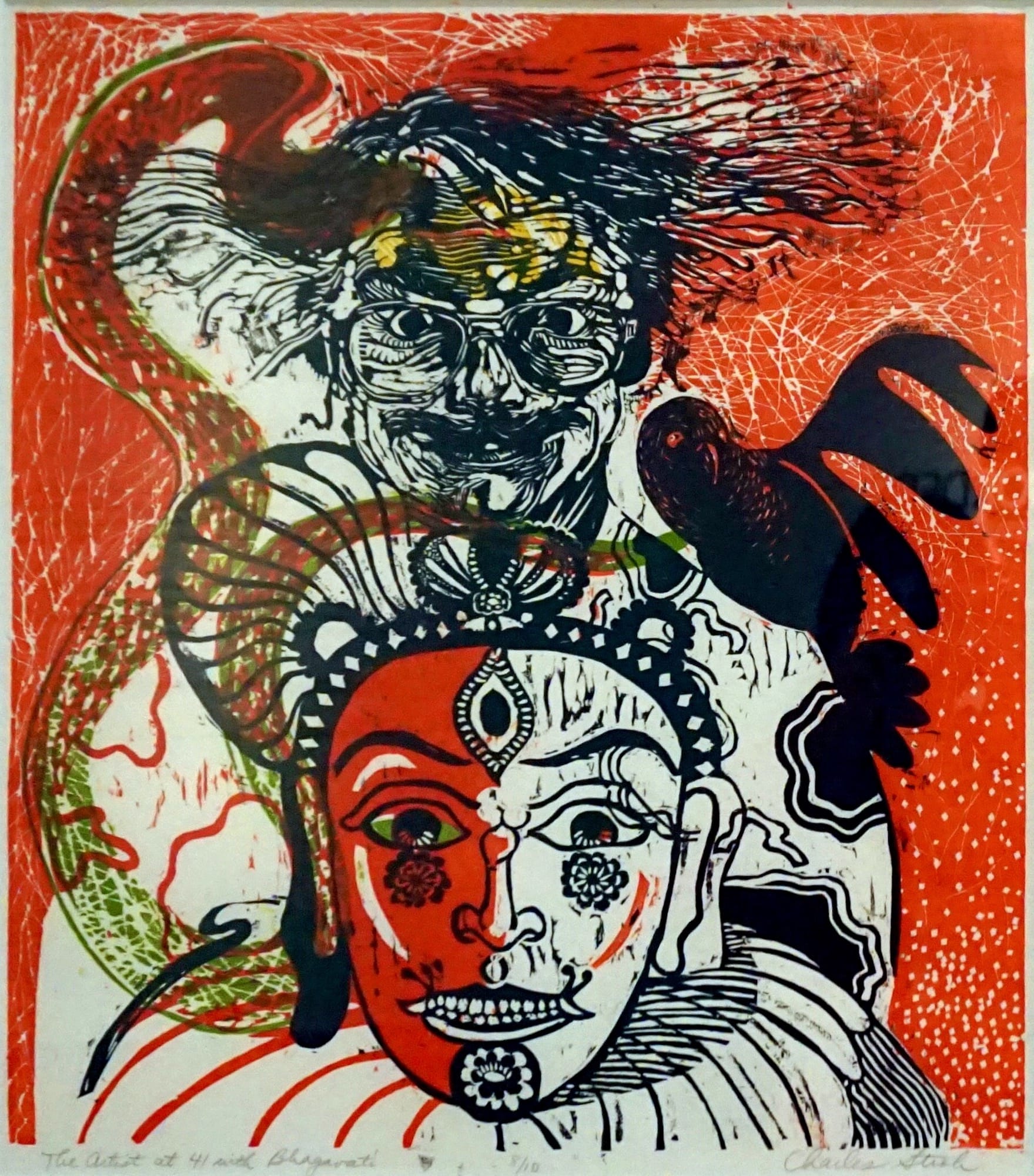
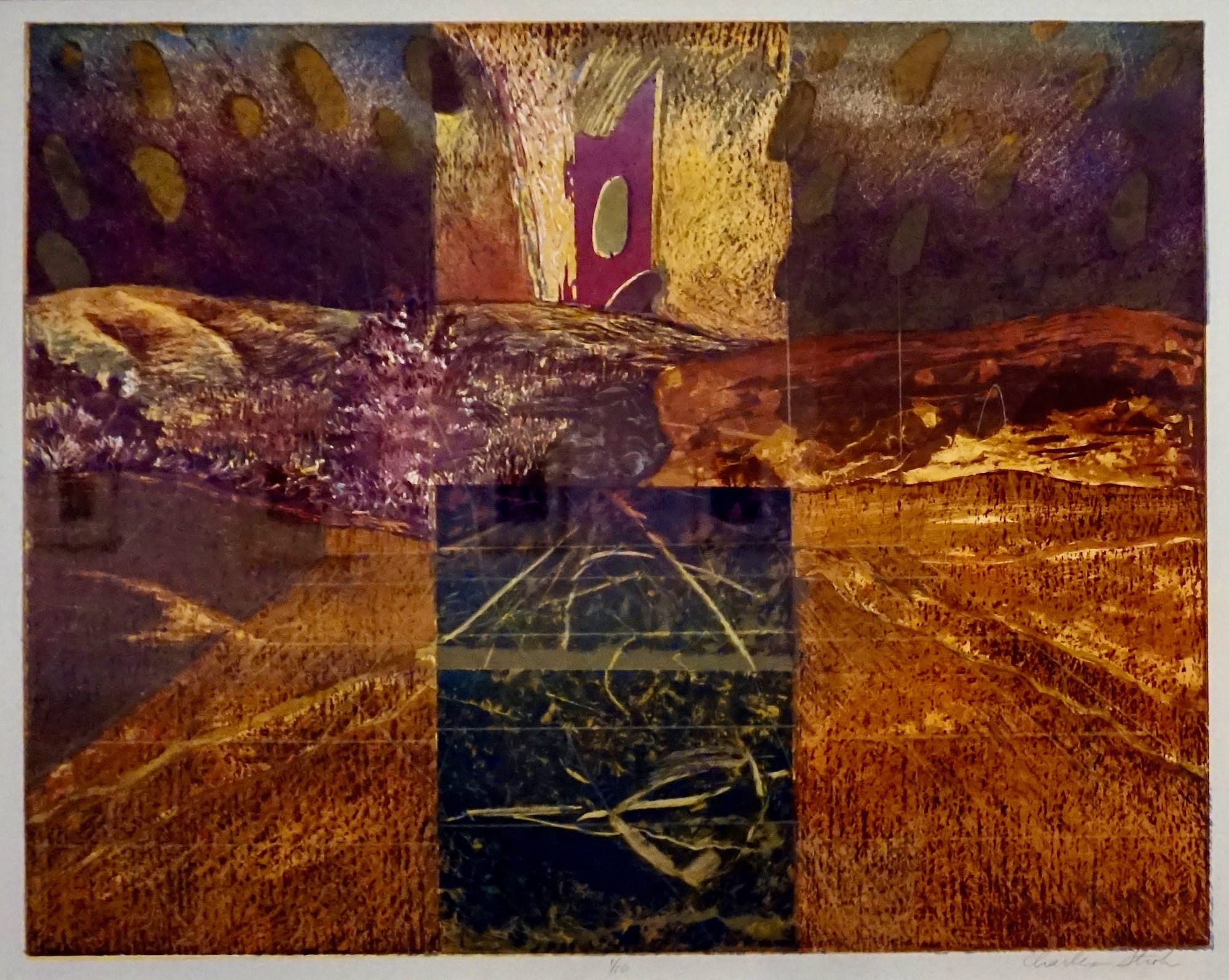
Works by Charles Stroh, from left: “The Artist at 41 with Bhagavati,” 1984–1985, color woodcut on paper, 19 by 17 inches; “Title unknown (Flinthills landscape),” late 20th century, lithograph, 16 by 20 inches. Photos by Abby Bayani-Heitzman for the SHOUT.
Another work of Stroh’s, the lithograph “Title unknown (Flinthills landscape),” also blends the Indian origins of his creative inspiration with the more familiar scenery of Kansas. The dark, rich colors and delicate textures suggest rolling hills at sunset, while a black rectangle rising at the center seems to be a man-made intrusion into the natural landscape, perhaps signifying a road cutting through the Flint Hills.
The composition of the piece is almost an inversion of Amitabha Banerjee’s “An Obituary,” also on display in the exhibition, with its subject descending from a white rectangle above. Whereas Stroh’s lithograph features a human construction upon a landscape, Banerjee’s etching illustrates a woman’s return to earth.
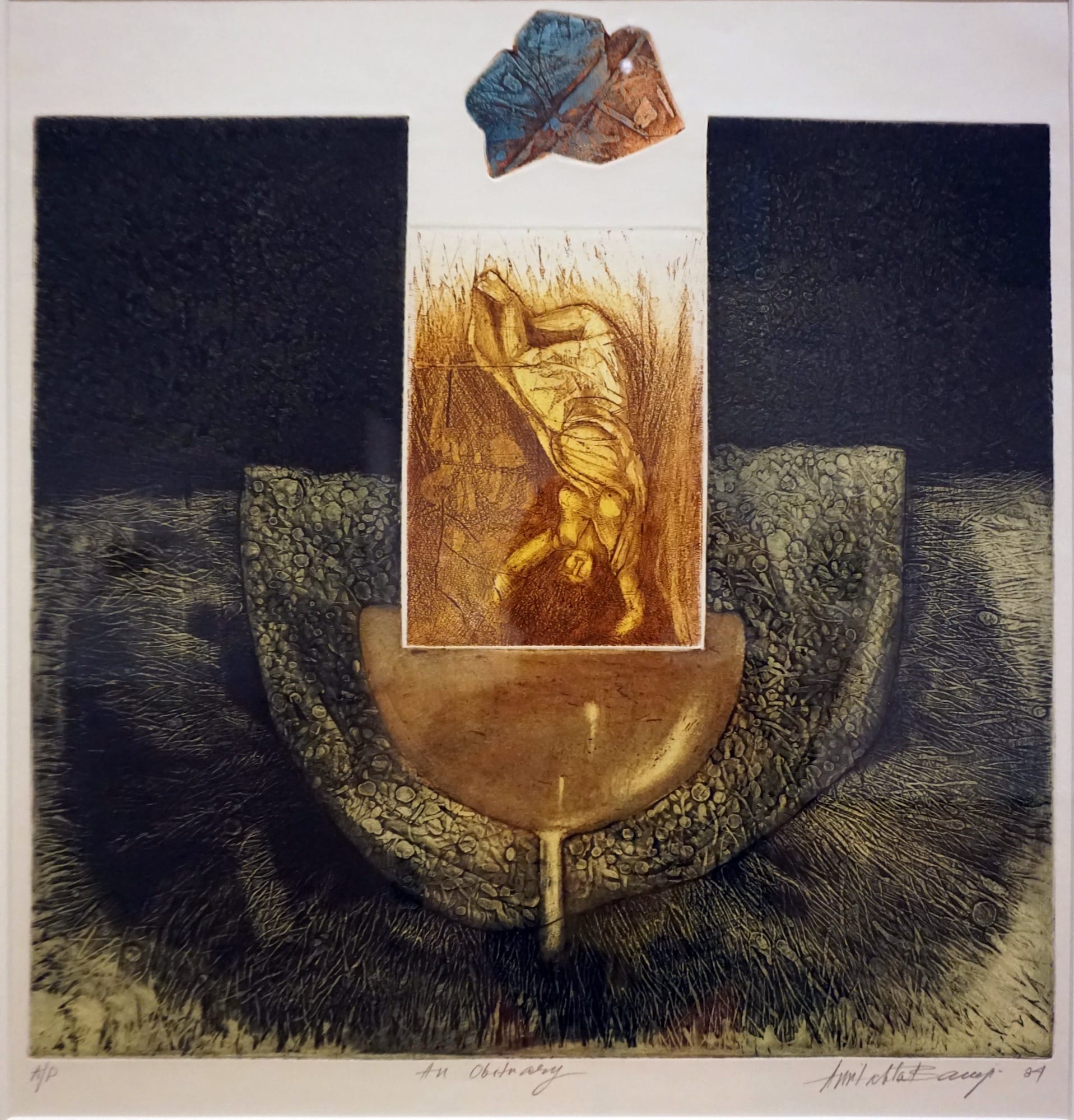
As one of the artists to visit K-State, Krishna Reddy is represented in the exhibition by his work “Clown Forming,” an aquatint and etching on paper that utilizes the process of simultaneous color — a technique that combines relief printing and intaglio printing to produce multi-colored prints, whereas a regular print is created by layering one color at a time. In Reddy’s work, clowns’ faces are hidden in the rings surrounding a pastel prism, and appear to transform and fuse into shapes similar to chromosomes. The result has the effect of a scientific illustration, as if the artist is rendering his own interpretation of the creation of life at the level of DNA.
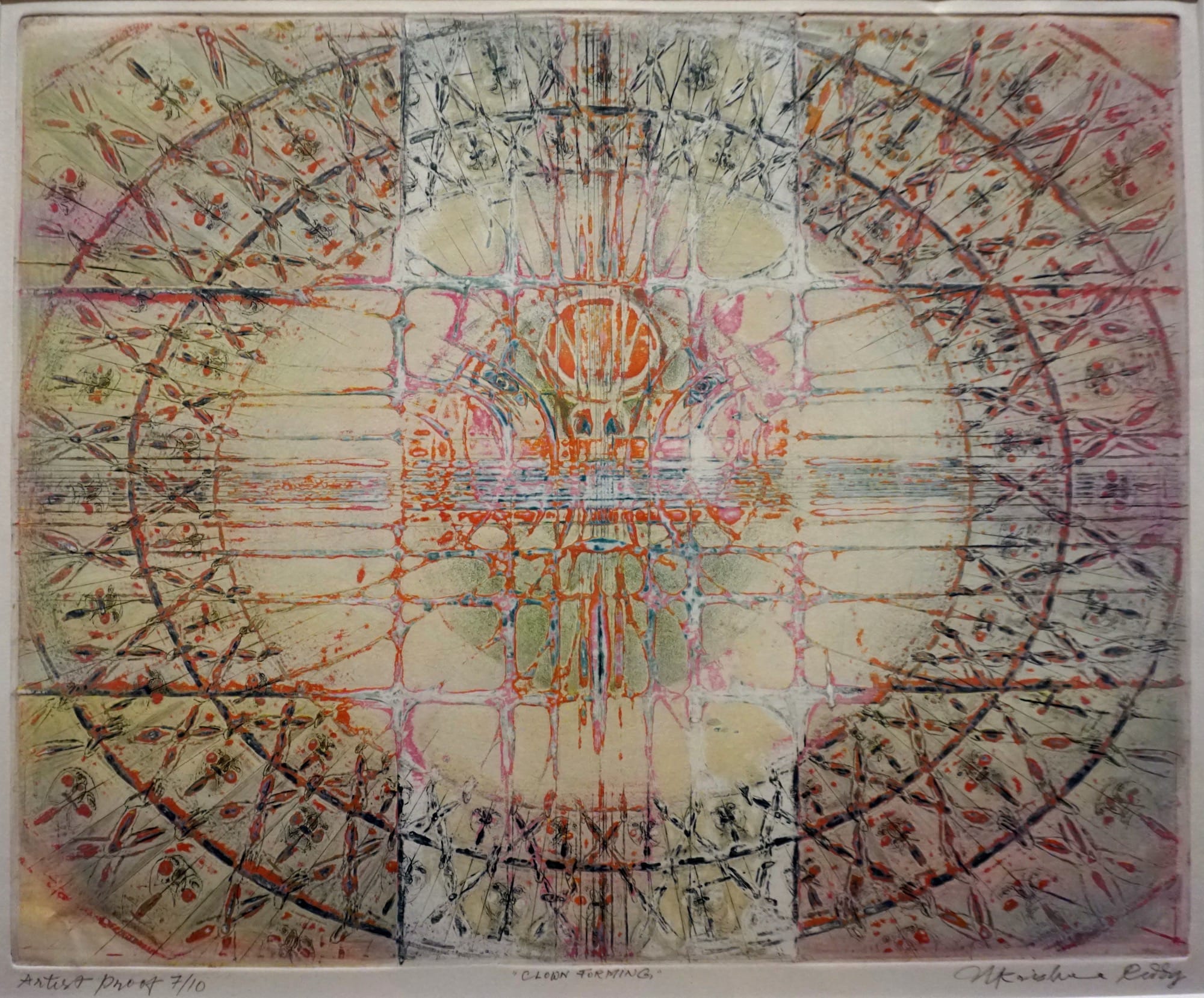
In another exploration of creation and form, Jyoti Bhatt employs three different languages to demonstrate the multiplicity of being in his etching of “A Face.” The texts used in the image are in English, Sanskrit, and Gujarati, and they mix together within the outline of a face, along with arms, legs, and another head. The English text reads,
“Thou art formless, though possessing form, for by means of maya [illusion], thou dost assume innumerable forms according to thy desire. Thou thyself art without beginning, and yet art the beginning of all. It is thou who createth, preserveth, and destroyeth the world.”
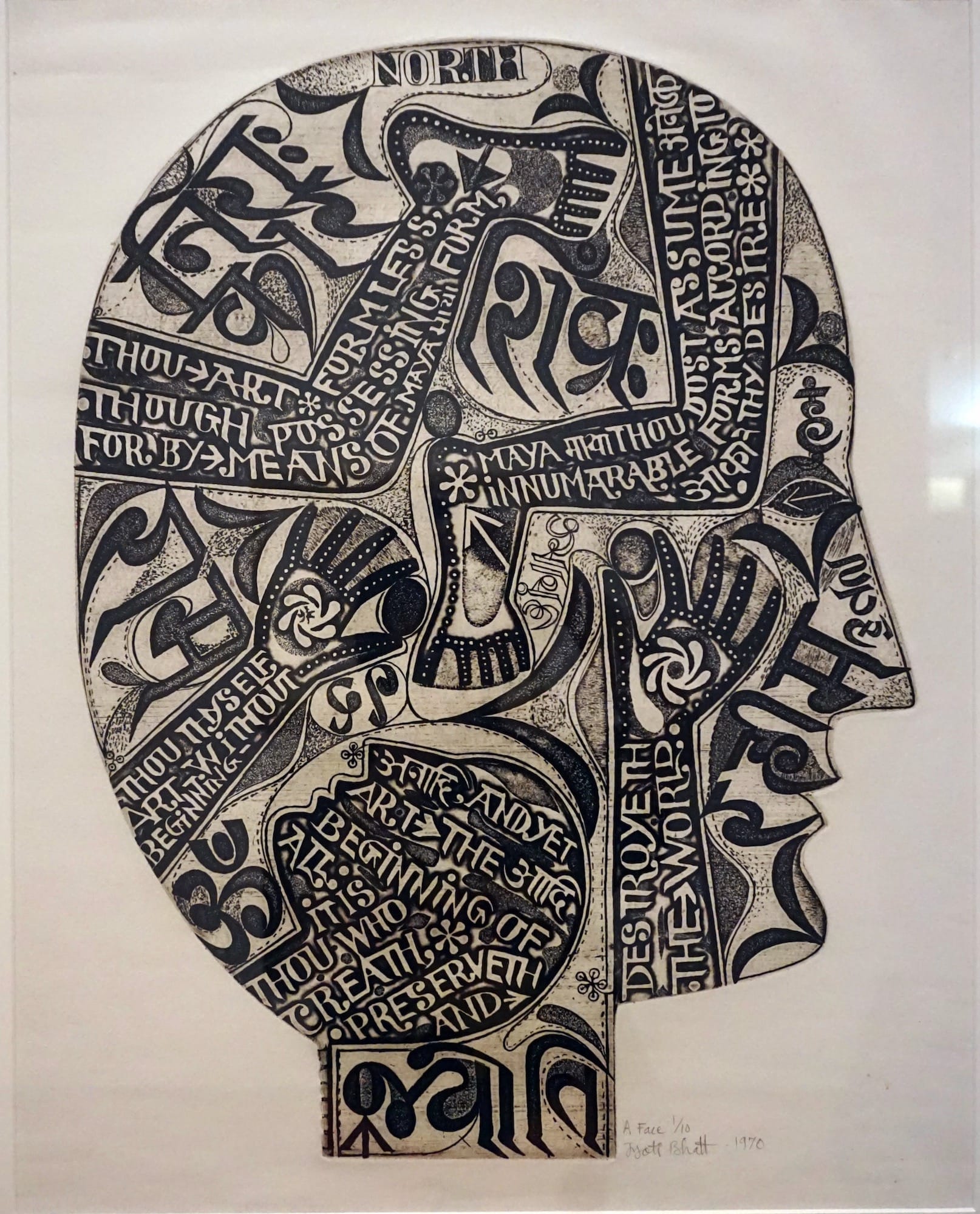
These lines are taken from the “Mahanirvana Tantra,” which describes Mahakali, the Hindu goddess of time and death. The image demonstrates the power of creation and self-creation within one’s own mind while also highlighting the possibility of multiple personas through the different languages.
As a whole, “Printing Beyond Borders: Contemporary Indian Prints at Kansas State University” acts as a portal into the world of Indian printmaking and its global connections. In their viewing, visitors will continue to grow that network as they take their experience out into the world, furthering Stroh’s efforts to celebrate contemporary Indian printmaking.
The Details
“Printing Beyond Borders: Contemporary Indian Prints at Kansas State University”
August 13, 2024–May 31, 2025 in the Marion Pelton Gallery at the Marianna Kistler Beach Museum of Art, Kansas State University, Manhattan, Kansas
A special event, “India: A Cultural Celebration” will be held from 5-7 p.m. Thursday, March 13, 2025. The celebration will be free and open to all.
"Printing Beyond Borders" is open to the public during the Beach Museum's regular hours: 10 a.m.-5 p.m. Tuesdays, Wednesdays, and Fridays; 10 a.m.-8 p.m. Thursdays; and 11 a.m.-4 p.m. Saturdays. The museum is closed on holidays.
Admission is free.
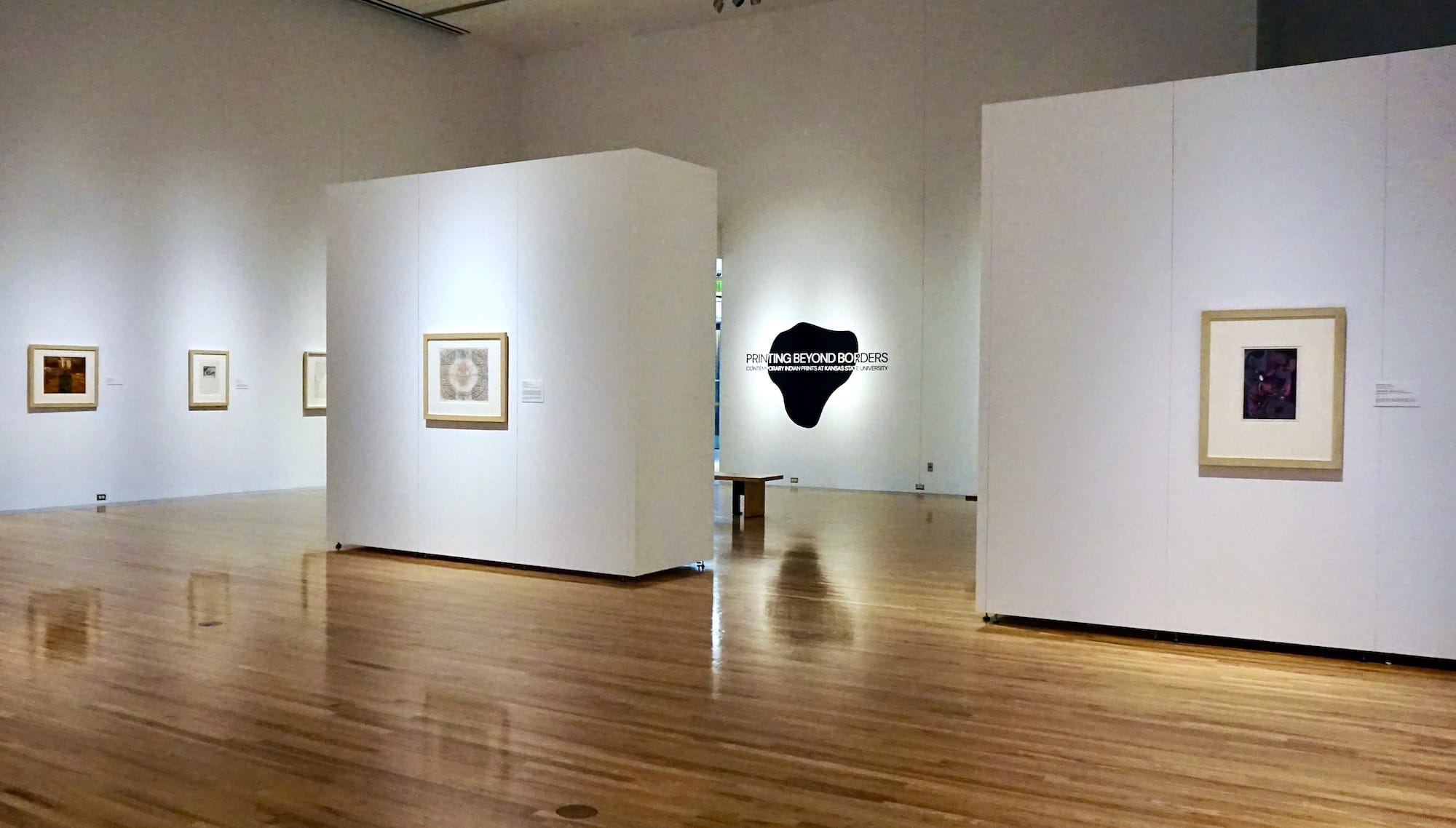
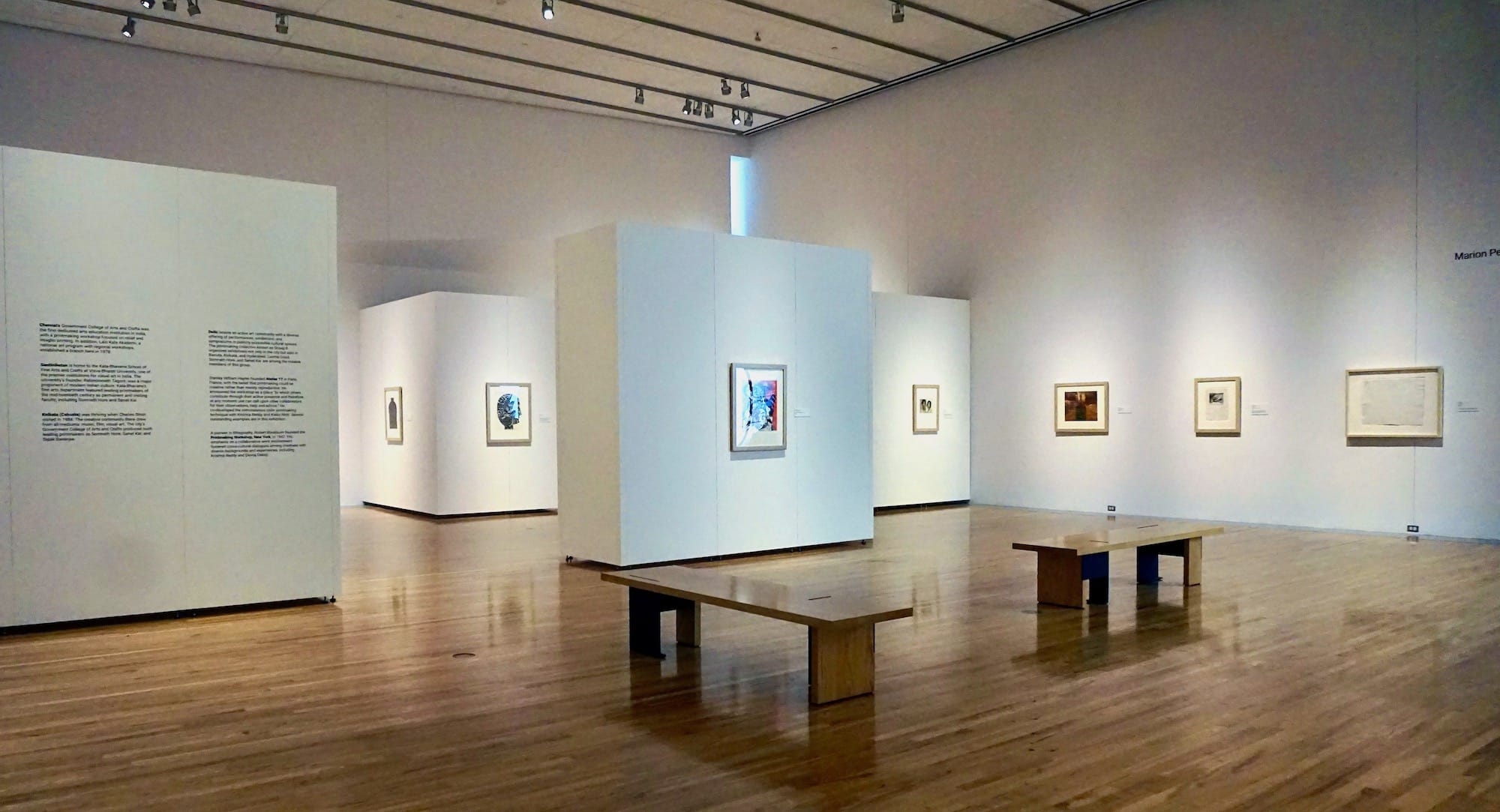
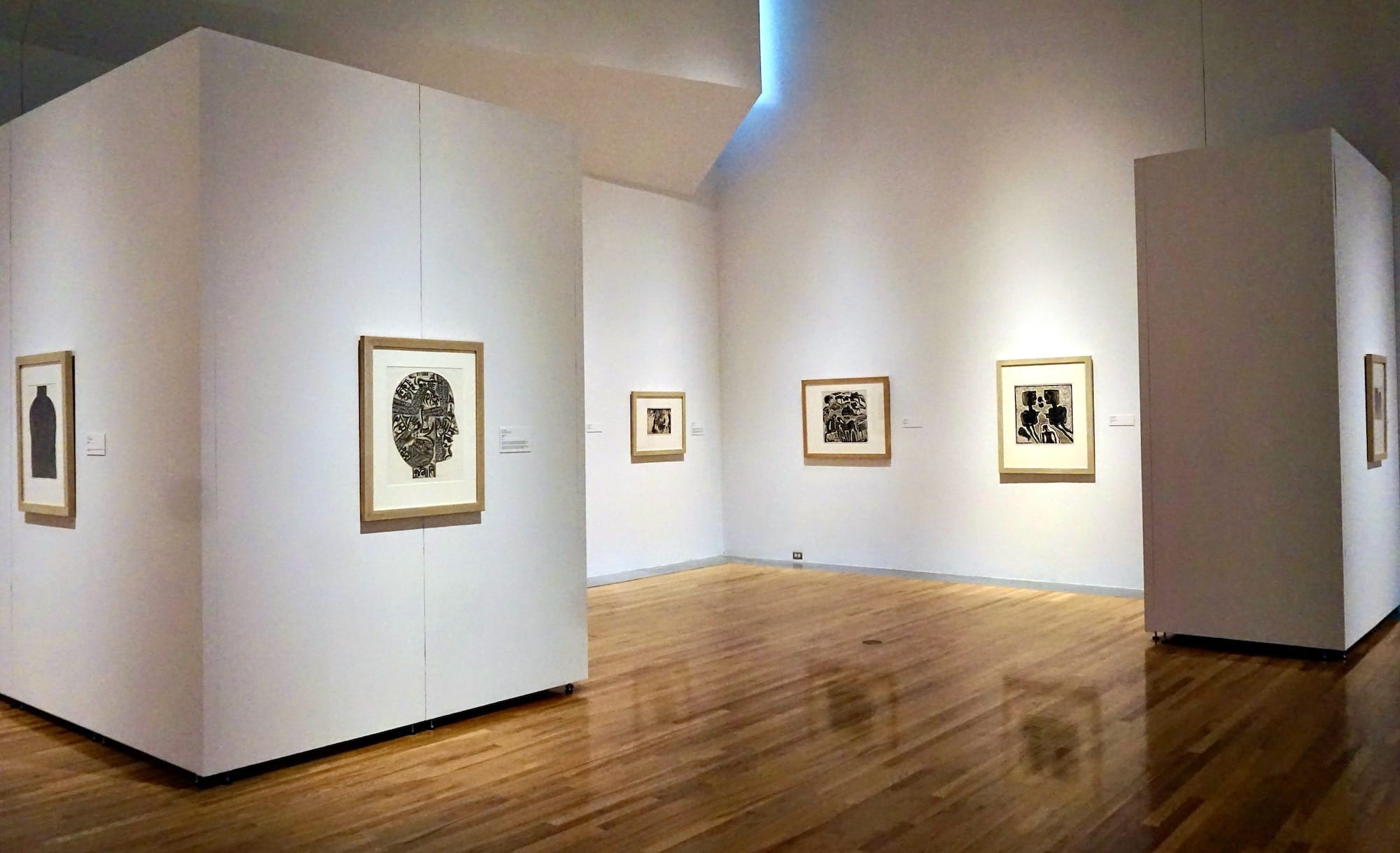
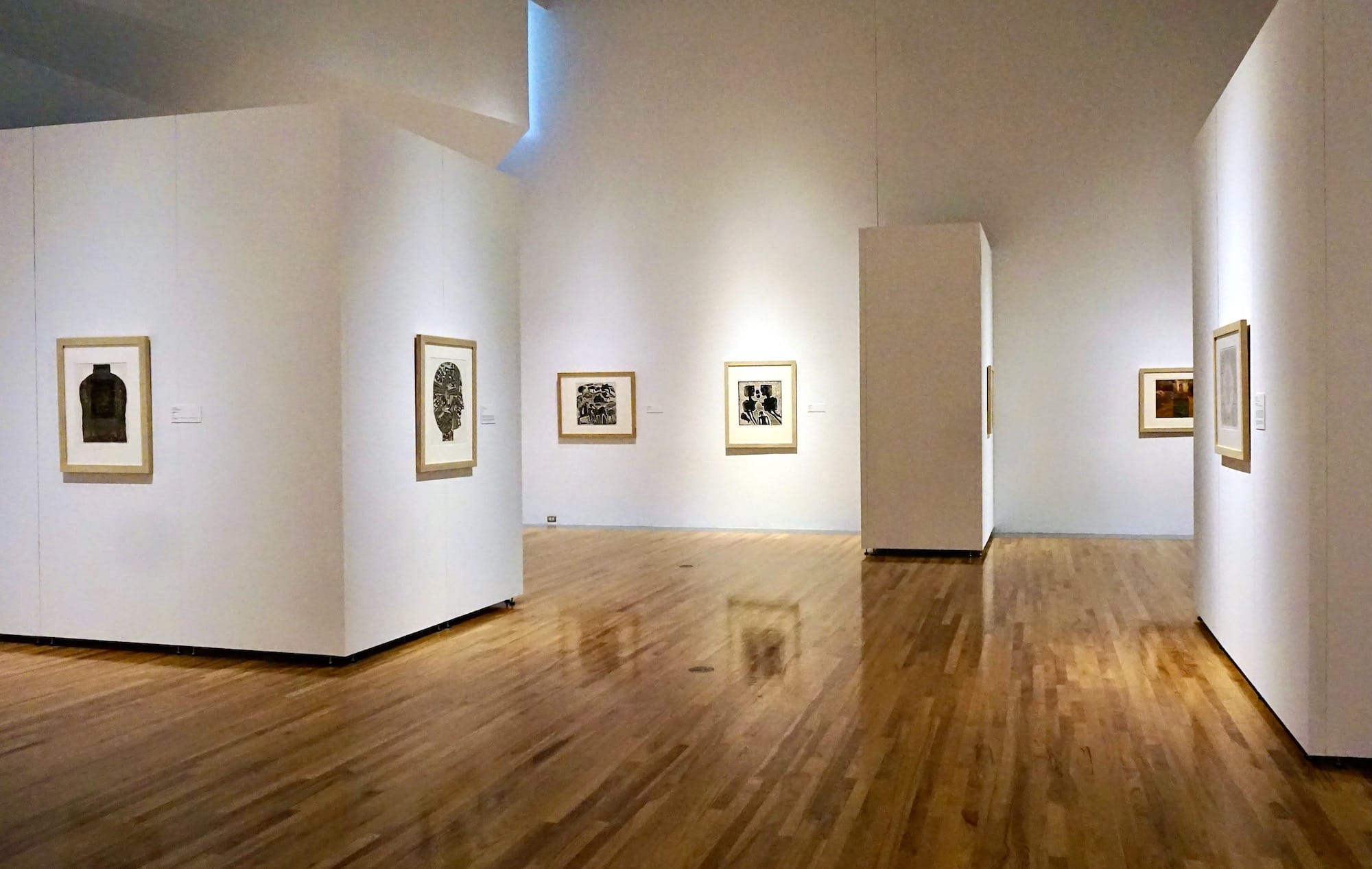
Installation views of "Printing Beyond Borders" at the Beach Museum of Art. Photos by Abby Bayani-Heitzman for the SHOUT.
Abby Bayani-Heitzman is a Filipino American writer born and raised in Northeast Kansas, where she continues to live and work. She received her Master of Arts in English from Wichita State and participated in the second cohort of the Kansas Arts Commission’s Critical Writing Initiative. Since 2021, she has published the fanzine Played Out, which focuses on music and subculture in Kansas.
Support Kansas arts writing
The SHOUT is a Wichita-based independent newsroom focused on artists living and working in Kansas. We're partly supported by the generosity of our readers, and every dollar we receive goes directly into the pocket of a contributing writer, editor, or photographer. Click here to support our work with a tax-deductible donation.
❋ Derby man has the kind of voice that turns heads — and chairs
❋ Socializing while sober: how some Wichitans are cultivating alcohol-free communities
❋ As a small creative business closes, the owner mourns
❋ Painting through it: Autumn Noire on 20 years of making art
❋ How a guy from Wichita resurrected 'Dawn of the Dead'
❋ Bygone Friends University museum housed curious collections
More from the SHOUT
 The SHOUTEmily Christensen
The SHOUTEmily Christensen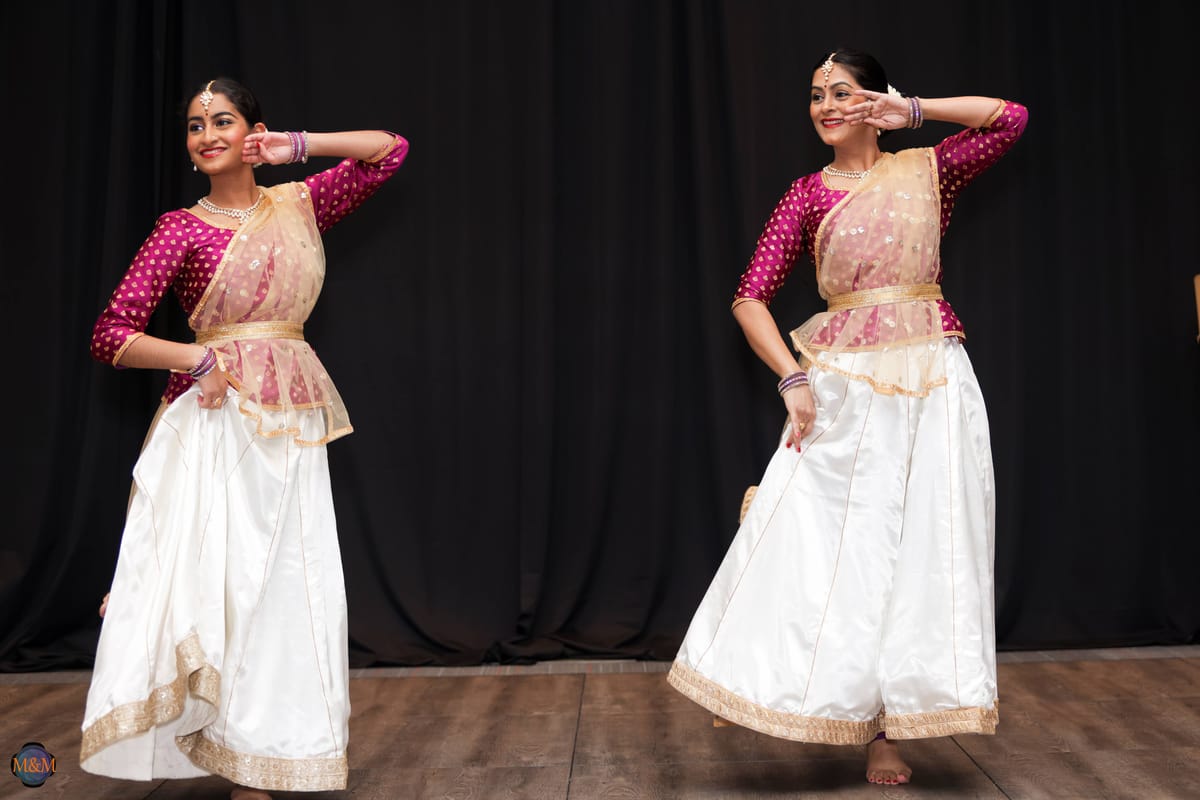
 The SHOUTCecilia Green
The SHOUTCecilia Green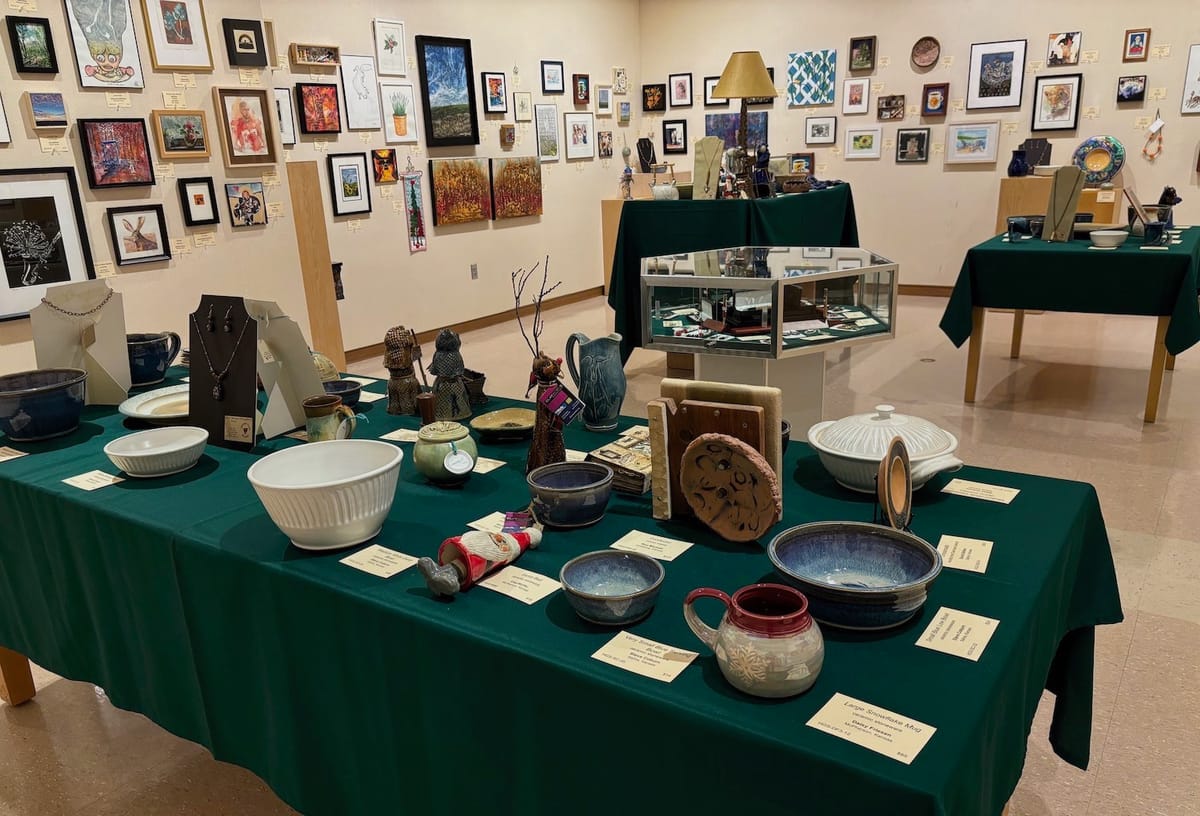
 The SHOUTSam Jack
The SHOUTSam Jack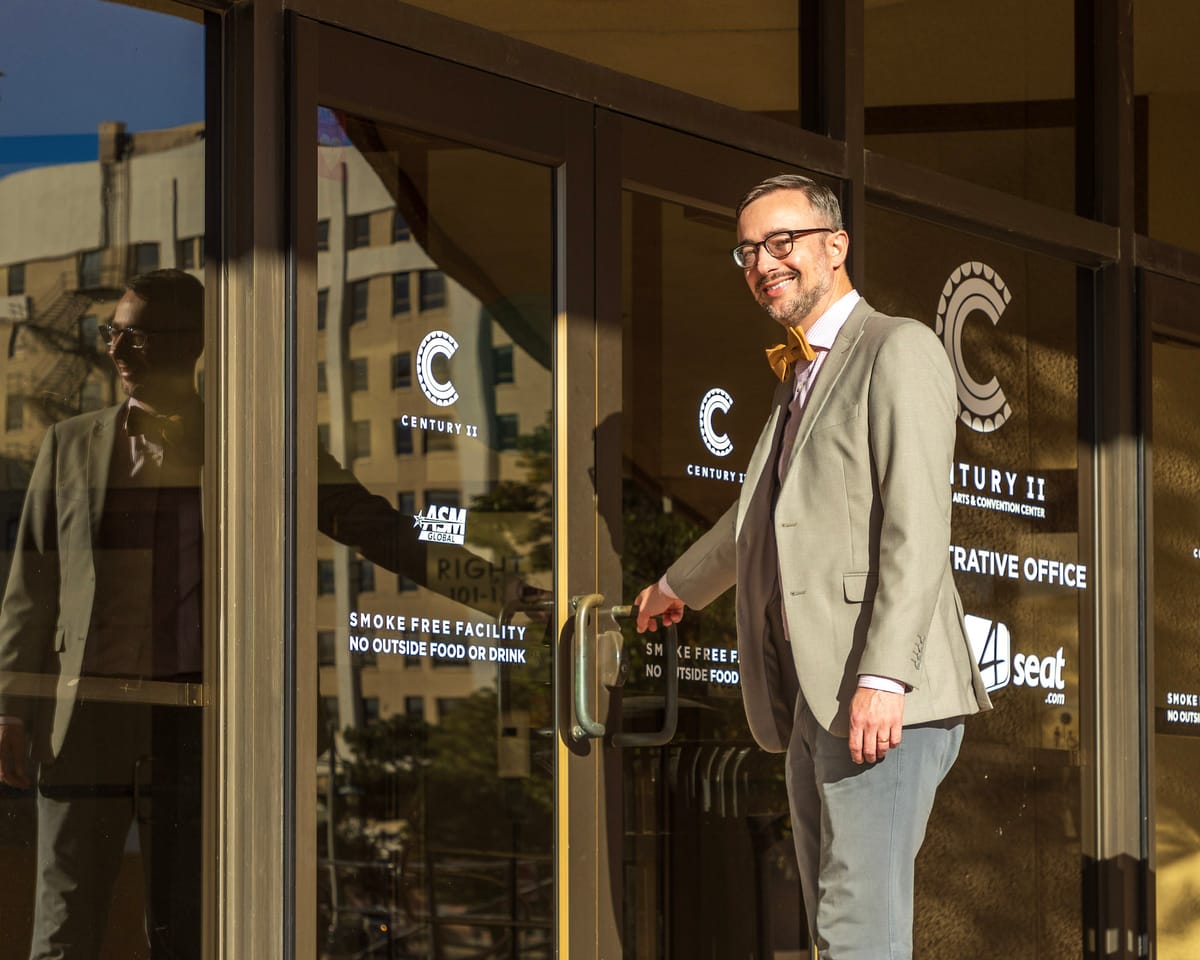
 The SHOUTKrista Vollack
The SHOUTKrista Vollack